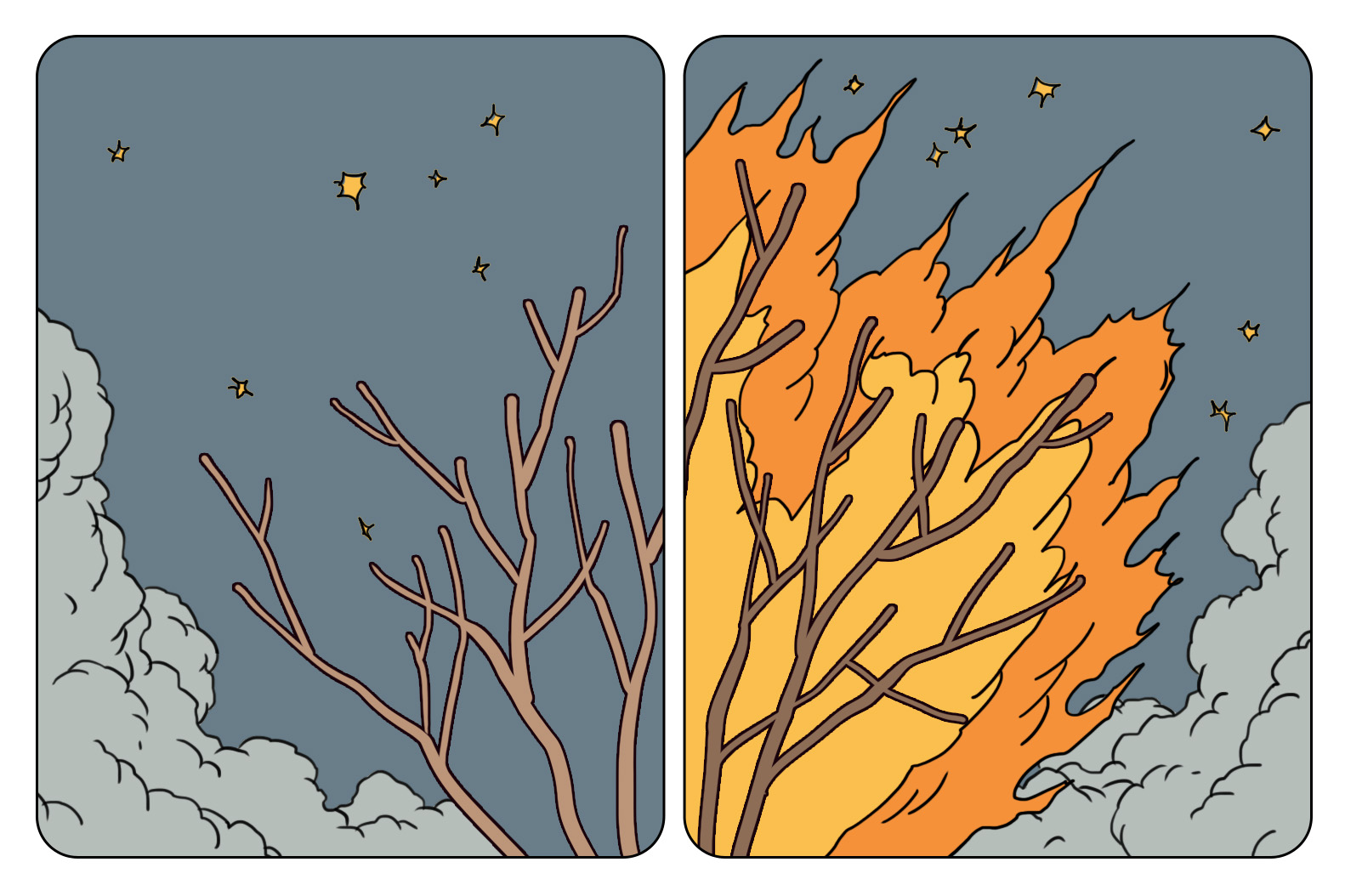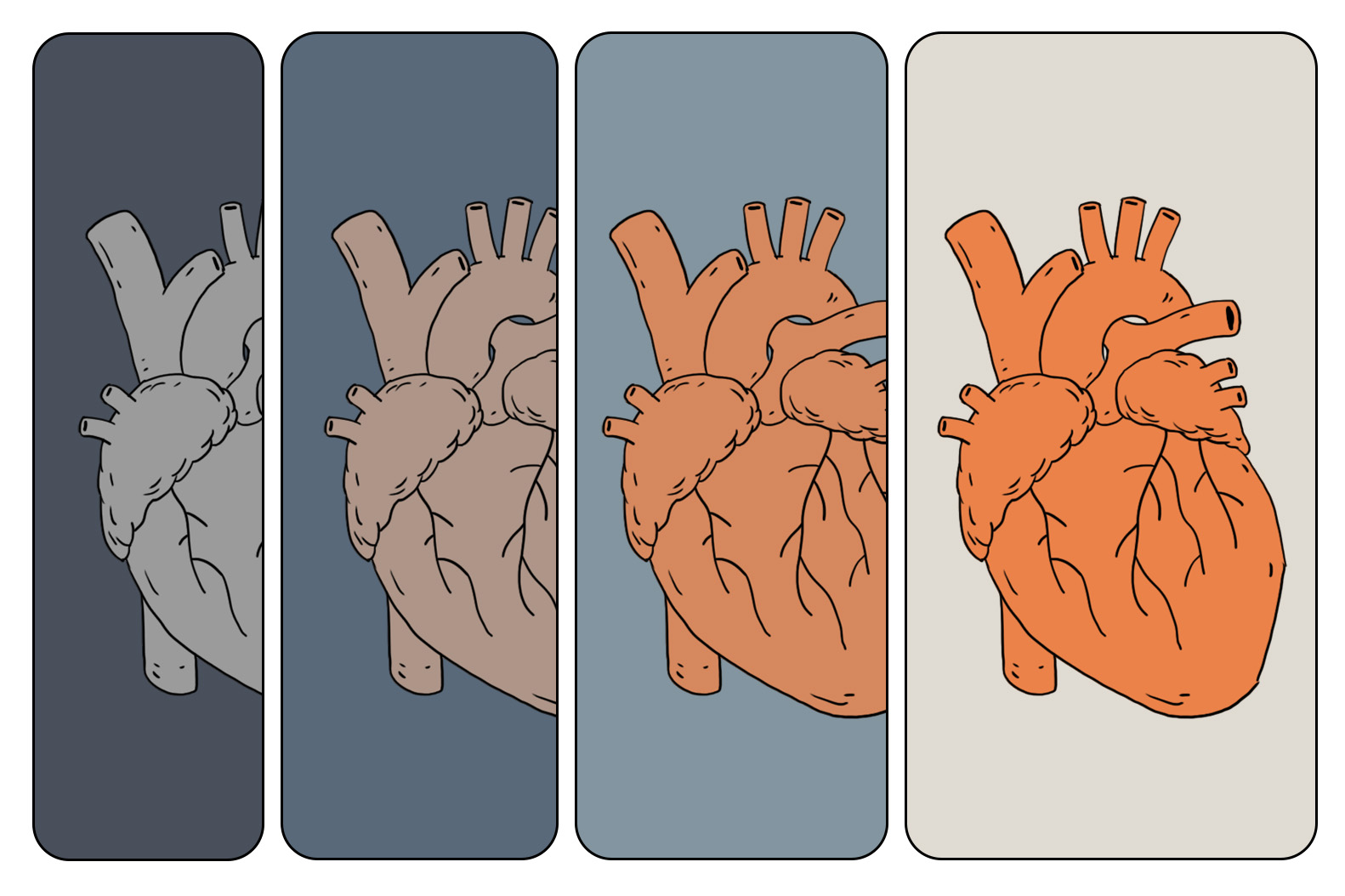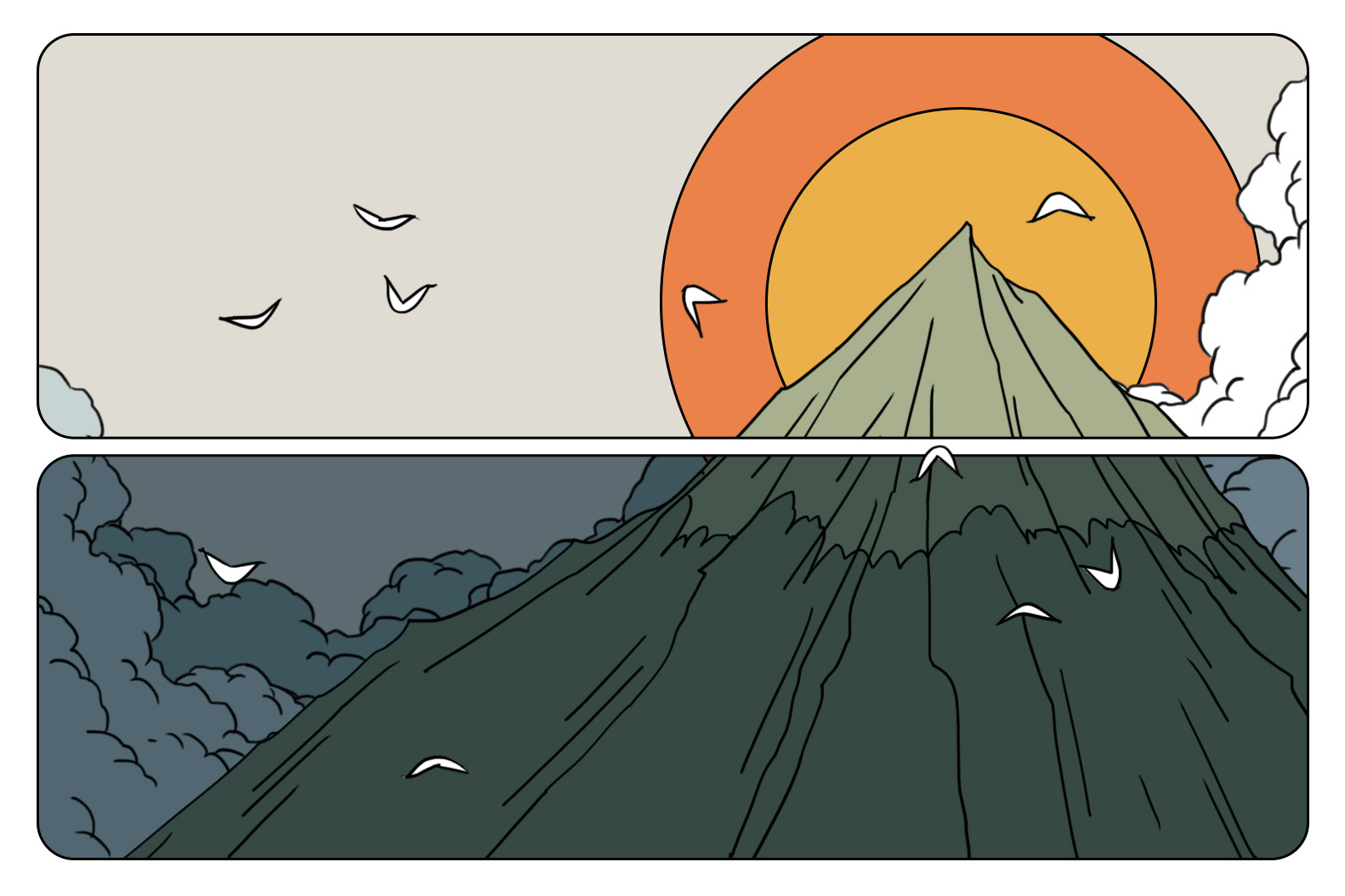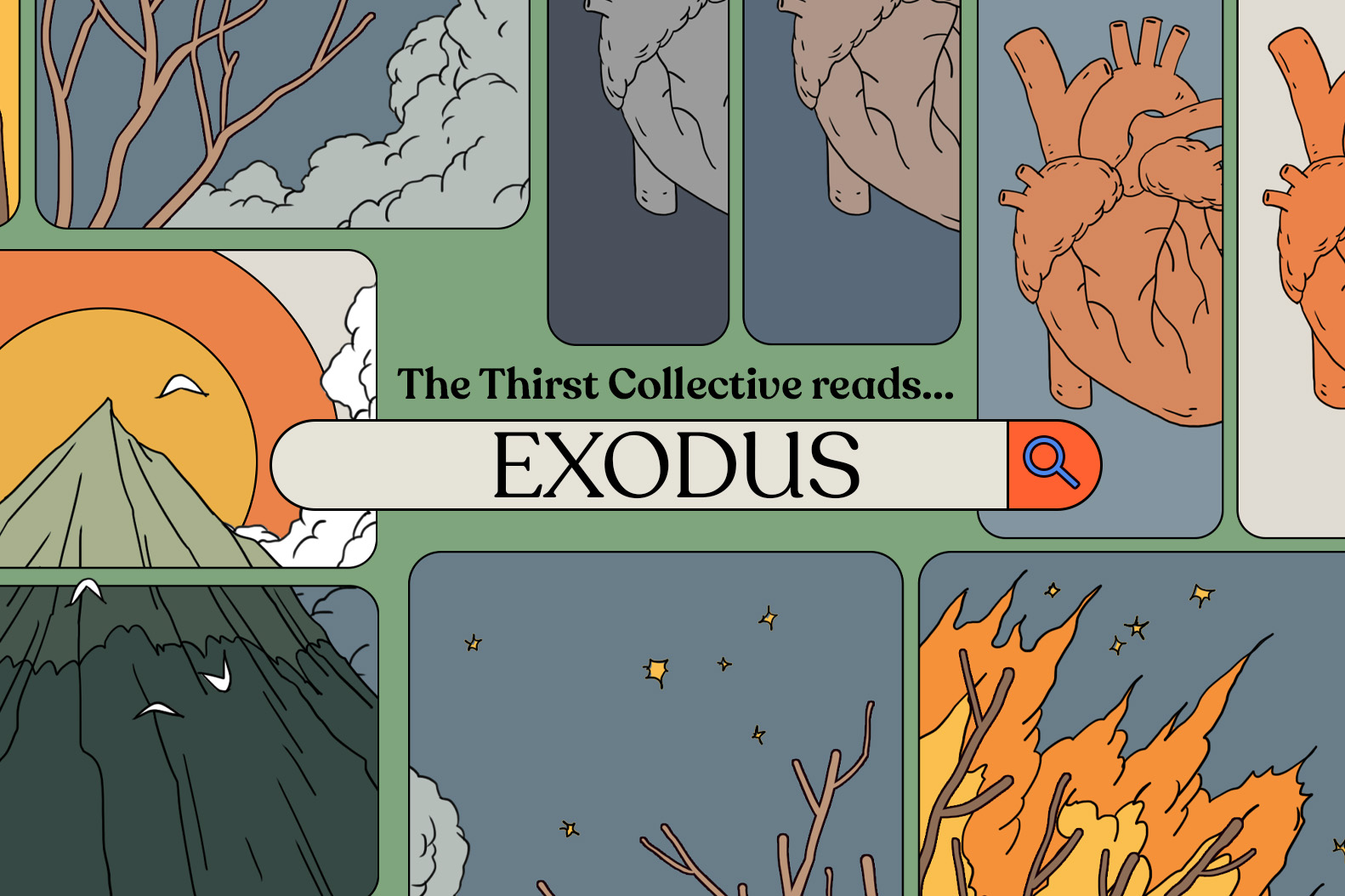Through 2024, every member of the Thirst Collective – Thir.st, Salt&Light, Stories of Hope, 还好吗 hhm.sg, Living Room, Collective Studio – has committed to reading the Bible from cover to cover.
We thought it’d be cool to pick out reflections and insights from our team’s readings to share with you. This time, dive deep into Exodus with us!
Exodus 4: Moses doubts himself
Gracia, Salt&Light
“Moses said to the Lord, “Pardon your servant, Lord. I have never been eloquent, neither in the past nor since you have spoken to your servant. I am slow of speech and tongue.” The Lord said to him, “Who gave human beings their mouths? Who makes them deaf or mute? Who gives them sight or makes them blind? Is it not I, the Lord?”” (Exodus 4:10-11)
It’s comforting to see how patient God was with Moses when Moses didn’t want to do what God had called him to do. It could have been easy for God to be like, “K bye I’ll choose someone else”. I mean, after all, He didn’t need Moses.

But God persisted and was patient enough to give Aaron to Moses even though He was angry. And Moses ended up becoming one of the Bible’s greatest leaders, as well as one of the heroes of the faith. He even appeared at the transfiguration!
Though Moses was quite the unwilling participant, God still was loving enough to persist in His call, equipping and guiding Moses to become the person he ended up to be. And I trust that He’s the same with us all!
Exodus 6: Moses cannot, God can
Ying Jie, 还好吗 hhm.sg
“But Moses said to the Lord, “If the Israelites will not listen to me, why would Pharaoh listen to me, since I speak with faltering lips ?” Now the Lord spoke to Moses and Aaron about the Israelites and Pharaoh king of Egypt, and he commanded them to bring the Israelites out of Egypt.” (Exodus 6:12-13)
Moses was a wounded man (Exodus 2:14). The more confident a man is in himself, the deeper the scars of failure. Moses fell from such a high “I can” to such a deep “I can’t”, that the scars did not heal easily. It was difficult to regain courage.
God’s healing was extraordinary in that He did not answer Moses’ questions about his faltering lips (Exodus 6:12).
Instead, He “spoke to Moses and Aaron about the Israelites and Pharaoh king of Egypt, and he commanded them to bring the Israelites out of Egypt” (6:13) so that Moses could experience God in his ministry and “God can” in his “I cannot.”
Exodus 10: Pharaoh’s hardened heart
Zemin, 还好吗 hhm.sg
“… so that I may perform these miraculous signs of mine among them that you may tell your children and grandchildren how I dealt harshly with the Egyptians and how I performed my signs among them, and that you may know that I am the LORD.” (Exodus 10:1-2)
Pharaoh’s position is quite interesting. His hardened heart let others see how great God is and what it means to fear God. To both the Egyptians and the Israelites, God demonstrated His power.
I’m sure that 430 years in Egypt had caused the Israelites to forget how great God is and what it means to fear Him. Using Pharaoh, who would be the Israelites’ greatest fear, to teach them all over again about God is remarkable indeed.

Exodus 13: God leads us down the better path
Levan, Stories of Hope
At times, the path God leads us down seems long. The wait is long. The travel seems longer than if we had chosen our own way.
But we see here that, oftentimes, God does this to prevent us from dangers or worries we do not realise, because God exists outside of time and sees all possibilities, factoring in our free will.
But those who abide by Him and follow Him, and trust that in all things He has a bigger idea of what’s going on — for such, God leads us down the better path, even as we don’t realise it is the better path in the moment.
Exodus 14: Moses parts the red sea
Zoe, Thir.st
“Moses answered the people, “Do not be afraid. Stand firm and you will see the deliverance the Lord will bring you today. The Egyptians you see today you will never see again. The Lord will fight for you; you need only to be still.”” (Exodus 14:13-14)
The Israelites feared when the Egyptians were after them. When Moses shared this word of encouragement with the people, it probably took a lot of faith for him to trust God’s words and a lot of conviction to lead these people at that time.
From these verses I was reminded that in times of doubt, stand firm in what God says and trust in His character and faithfulness – He will never fail us.
Exodus 18: Moses and Jethro
Juleen, Salt&Light
Moses and his father-in-law (FIL) Jethro model what an intergenerational church can look like.
1. They helped each other
Jethro took care of his daughter and grandchildren, enabling Moses to focus on his calling to lead the Israelites. Jethro also thoughtfully took Moses’ wife and sons to visit Moses. He didn’t have to do all this as he had already married off his daughter. But in whatever way he could, he supported Moses in his calling (Exodus 18:2-5).
2. They had respect and care for each other
Moses bowed down and kissed his FIL (not his wife though!) and “asked of each other’s welfare” (Exodus 18:6-7). “Each other” — the relationship was mutually respectful.
3. They rejoiced in each other
Verses 7-8 are touching. Moses related all his adventures to his FIL, even the hard bits, “and Jethro rejoiced”. This reveals a sweet moment between them. Jethro was a good listener and had Moses’ back, while Moses felt “safe” enough to tell Jethro everything.
4. Jethro gave sound advice and Moses listened and implemented it
Jethro has practical wisdom to share with the next generation. While validating Moses’ leadership as not for personal gain but for a nation (Exodus 18:14), Jethro observes that Moses is now leading an organisation of thousands and needs to delegate, for his good and for the nation’s. Moses is receptive.
5. FIL and son-in-law’s common faith (Jethro is a priest) is a foundation for their mutual love, respect and purpose
Jethro gives praise to God on hearing of Moses’ adventures and God’s interventions (Exodus 18:9-12).
In doing so, he validated Moses’ mission, which must have done Moses’ heart good and strengthened his resolve after many discouragements.

Exodus 24: Mount Sinai
Felicia, 还好吗 hhm.sg
“Now the Lord said to Moses, “Come up to Me on the mountain and remain there, and I will give you the stone tablets with the law and the commandment which I have written for their instruction.” (Exodus 24:12)
“The glory of the Lord rested on Mount Sinai, and the cloud covered it for six days; and on the seventh day He called to Moses from the midst of the cloud.” (Exodus 24:16)
Moses went up the mountain after God called him to come up and remain. Moses waited for six days before God called to him again.
What obedience and great faith he displayed, not knowing when God would do what He promised. Moses trusted and obeyed God’s words, not turning to his own wisdom or impatience but simply doing what God said.
Exodus 31: God and the arts
Christina, Thir.st
““See, I have chosen Bezalel son of Uri, the son of Hur, of the tribe of Judah, and I have filled him with the Spirit of God, with wisdom, with understanding, with knowledge and with all kinds of skills— to make artistic designs for work in gold, silver and bronze, to cut and set stones, to work in wood, and to engage in all kinds of crafts. Moreover, I have appointed Oholiab son of Ahisamak, of the tribe of Dan, to help him. Also I have given ability to all the skilled workers to make everything I have commanded you:” (Exodus 31:2-6)
I’m reminded of this book I read about the four fundamentals for Christian theology of the arts:
- The artist’s call and gift both come from God
- God loves and blesses a rich variety of art
- God maintains high standards for goodness, truth and beauty
- Art and beauty are for the glory of God
God has it all covered. He equips those He calls. It is a daunting list of very specific tasks that God has given, but He gives assurance that He will back us up with the necessary help and skills.
Bezalel and Oholiab had never built a tabernacle before, but God chose and called them and equipped them.
While God had appointed Bezalel and Oholiab to lead the project, the work and effort of many others was also key to making everything happen. One body, many parts, all for His glory.
Exodus 32: The impatience of the Israelites
Christine, Salt&Light
“When the people saw that Moses was so long in coming down from the mountain, they gathered around Aaron and said, “Come, make us gods who will go before us. As for this fellow Moses who brought us up out of Egypt, we don’t know what has happened to him.” (Exodus 32:1)
Waiting for God is tough but look at the impatience of the people. The one who did God’s miracles before their eyes and led them out of Egypt, they called him “this fellow Moses”.
“Now leave me alone so that my anger may burn against them and that I may destroy them. Then I will make you into a great nation.” (Exodus 32:10)
When you see the effort God made to establish a lasting relationship with the people and how the people (in ignorance of how God is working behind the scenes) reacted while waiting, you can totally appreciate God’s anger.
Sometimes, waiting for God to speak, to turn things around is a tough thing because nothing seems to be happening. And I am tempted to take things into my own hands, however incompetently, because at least something would then be happening.
I am sure the Israelites knew that their manmade calf is nothing compared to God. But in their minds, they probably felt that it was better than waiting and doing nothing.
… when we, in our impatience, take things into our own hands, we miss His perfect plan.
But God is always working, whether we see it or not or know it or not. And when we, in our impatience, take things into our own hands, we miss His perfect plan.
I love Moses’ reaction to God. He could have said: “Yes, such troublesome people. Go ahead and make ME a great nation, forget about them.”
But Moses is truly a shepherd because he loved the people even though they were so often unlovable and he spoke up for them.
In contrast was Aaron, who bowed to pressure because the people had “gathered around him”. And we are told later that it was not in solidarity but in something akin to mob violence.
- What struck you most through your reading of Exodus?
- How can you apply this biblical truth or principle to your daily life?









